Before wanting to care for others, one must first be able to love oneself. It is only after accepting this kindness towards oneself that it becomes possible to extend it to everyone else.
Matthieu Ricard
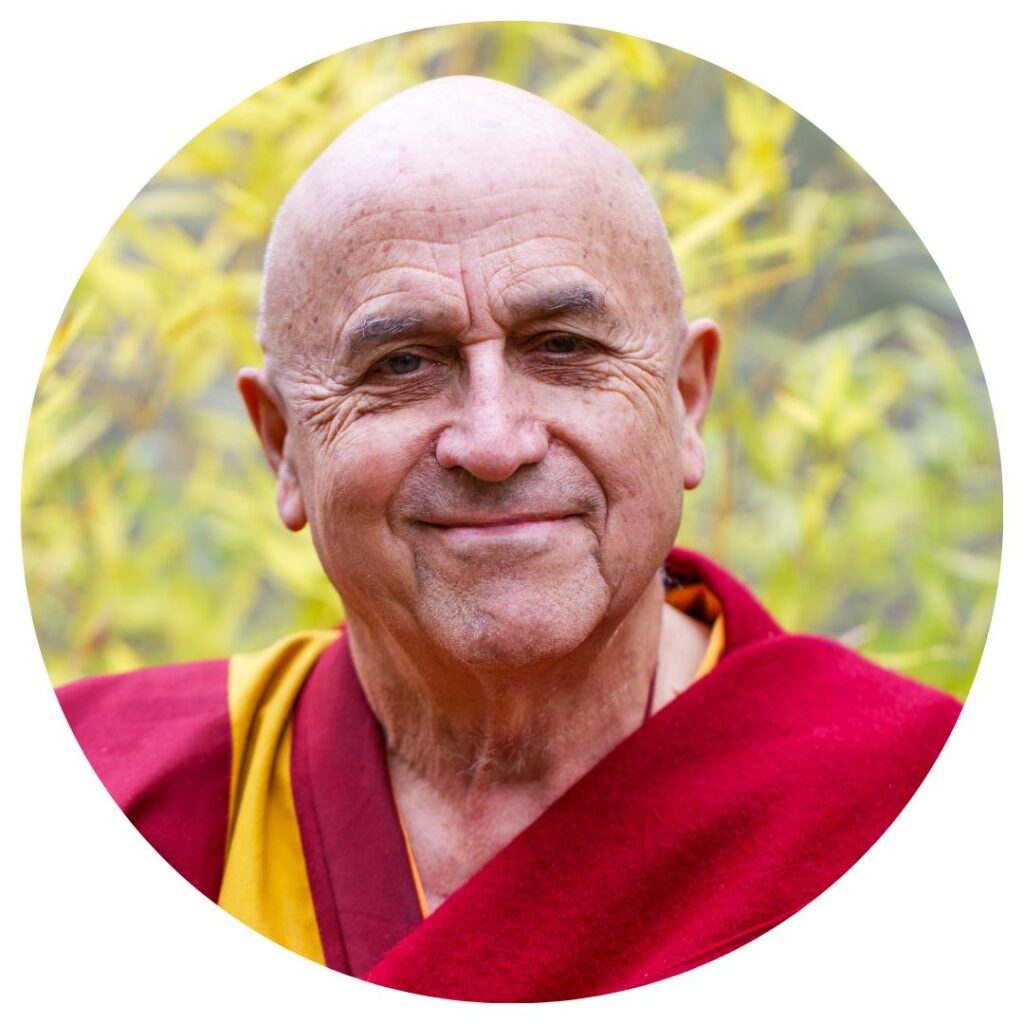
October 6, 2024, marks the 15th edition of National Caregivers’ Day, an important moment to acknowledge the role of the men and women who support vulnerable people every day.
More than just a commemoration, this day is a call for recognition and support for these unsung heroes. This year, the focus is on the importance of caregivers’ self-recognition so that they can access the resources they need.
Worldwide

The Invisible Reality of Caregivers
Any one of us could find ourselves in a situation of dependency, whether due to a disability, a chronic illness, or simply aging. Similarly, we may also find ourselves becoming caregivers, offering moral support, assistance with daily living, or even financial aid to someone close to us.
However, the role of a caregiver is not without challenges: it often involves social isolation, physical and mental exhaustion, a lack of adequate support, and the difficult balance between professional life and caregiving responsibilities.
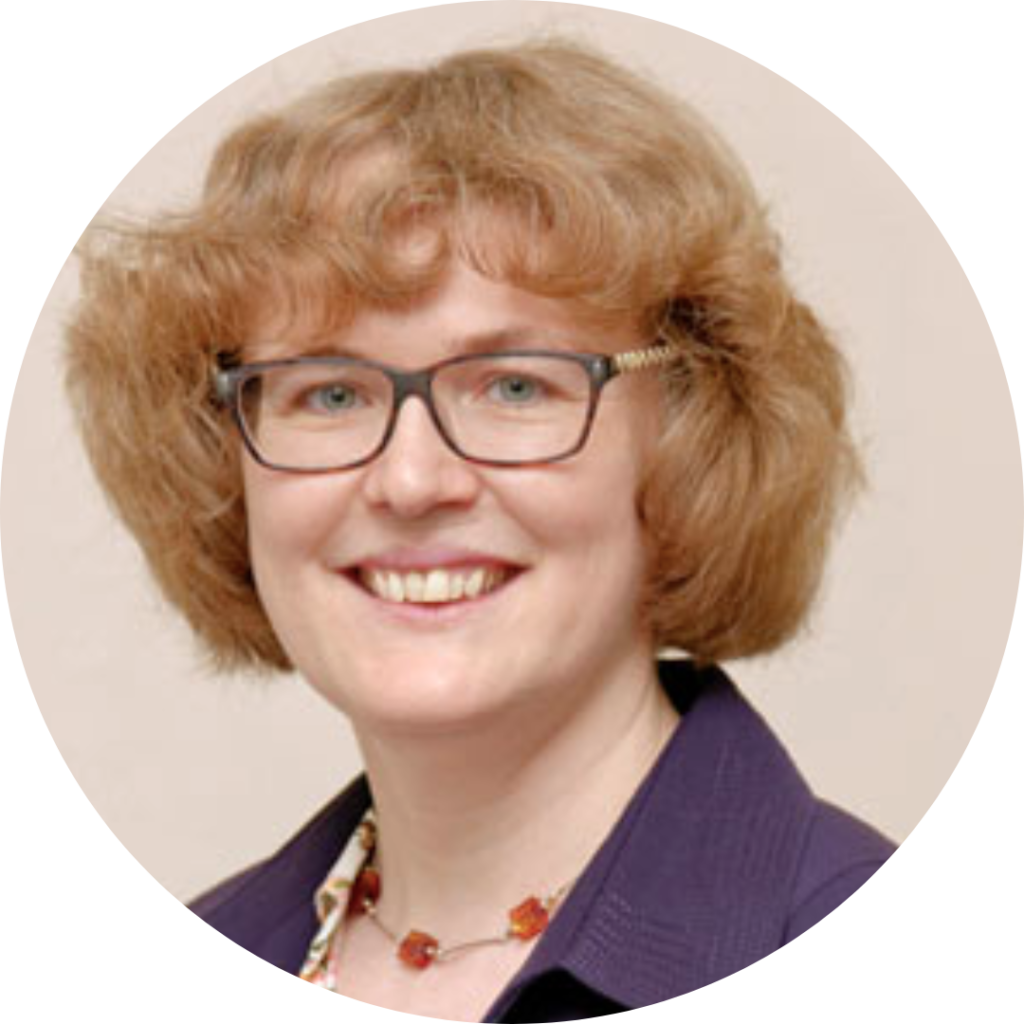
The caregiver is vulnerable because they are highly solicited, deeply emotionally involved.
Maryse Bresson, professor of Sociology
Whether caregiving is a profession or a personal commitment, these challenges can weigh heavily on the daily lives of caregivers, making collective awareness and enhanced support essential.
Karuna’s Resilience – Altruistic Alliance Program is part of this effort, offering personalized support so caregivers can continue their inspiring mission.
Resilience Program: A Concrete Response
The Resilience – Altruistic Alliance Program aims to help caregivers balance the care they give to others with the care they need to provide for themselves. It seeks to strengthen the resilience of individuals and organizations by promoting altruistic actions.
Structured into six weekly sessions, each lasting two hours, the program is conducted in the form of sharing circles.
This provides a space for participants to reconnect with themselves, acknowledge their emotions, and improve communication and engagement.
Participants learn to use practical tools to navigate their daily lives.
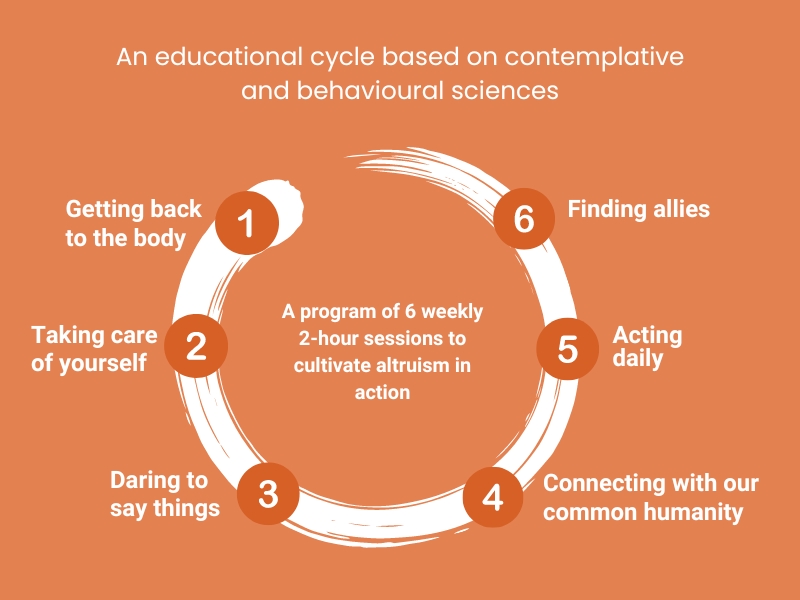
According to Franck Blot, Director of Advocacy and Instructor in Intelligence and Mindfulness, the program “provides tools to manage difficult emotions, clarify our needs, restore meaning to our work, and act in alignment with our values, while also helping to build connections with colleagues.” He continues: “It is very important to us that participants realize they are not alone in their challenging experiences, and that their colleagues can be valuable sources of support.”
A key approach of the program is the emphasis on action through the identification of the “Smallest Possible Steps” — concrete actions that each participant can undertake during and after the sessions.
Finally, the program facilitates the seamless integration of these tools within organizations by training internal instructors, who play a vital role in the implementation and ongoing support of resilience practices.
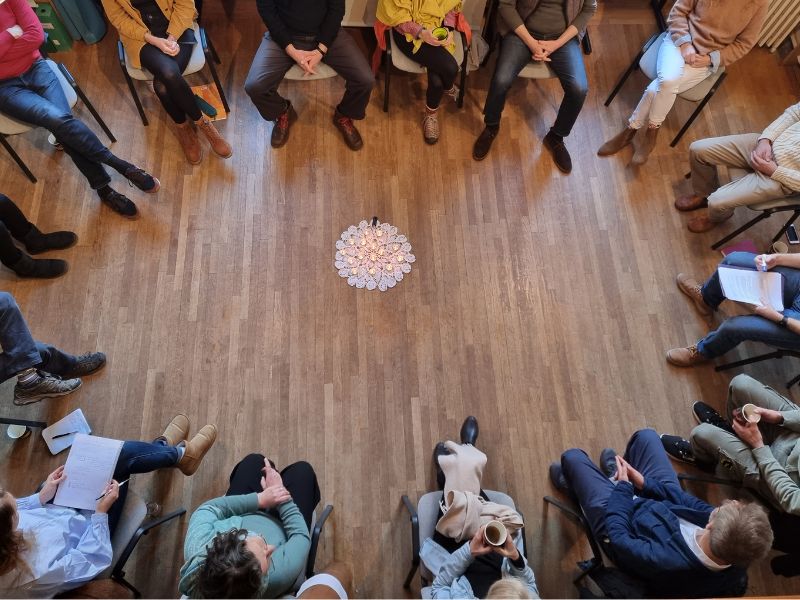
Franck Blot explains that there are two major challenges when supporting people in situations of great distress.
The first risk, he says, is falling into overwork, exhaustion, or even empathic distress by being deeply affected by those being supported.
On the other hand, he warns against the opposite danger: completely disconnecting from one’s emotions in order to confront suffering without being too affected by it.
This lack of emotion can lead to a loss of meaning in the work, a lack of kindness towards others, and also towards oneself, by being disconnected from one’s own feelings.
However, Franck reassures us: “When we talk about ‘resilience,’ we are referring to the resilience of an organization, association, or service.
In our view, the resilience of an organization comes from the altruistic actions of its members. The program invites each participant to find their own balance between caring for themselves and caring for others, while also fostering connections within a team. Ultimately, the idea is that we are allies, working together to alleviate all these forms of suffering.”
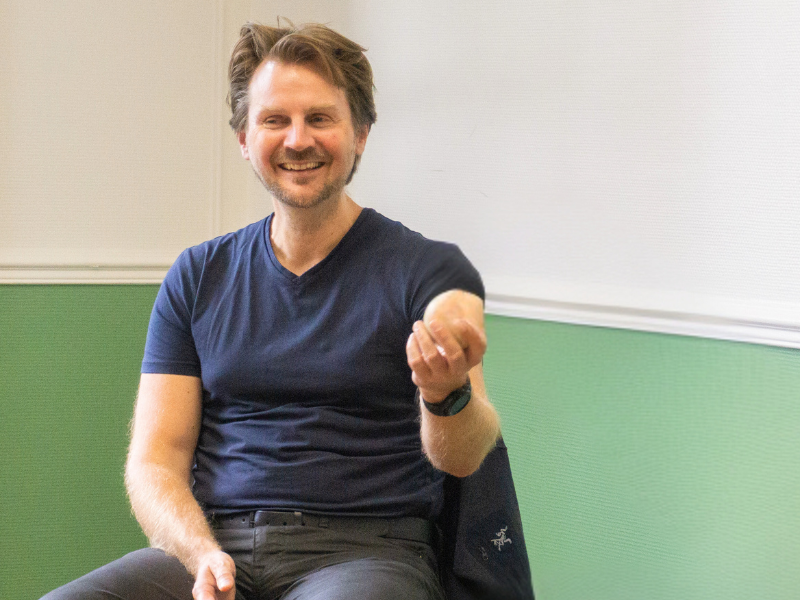
In 2024

Testimonials from participants
A workshop that I believe is necessary for all social workers. On the one hand, it provides a space that forces us to focus on ourselves. On the other, we learn tools that we can directly apply in our daily lives thanks to the half-day sessions. Finally, it allows us to feel supported by our employer, who recognizes the stressful nature of our work.
Social Worker at the Red Cross Luxembourg
This program was a great support for me during a particular period of recovery after professional burnout. It proved to be very helpful and complemented the psychotherapy I was undergoing at the same time.
Social Worker at the Youth Judicial Protection (Ministry of Justice)
In my personal life, I had already been open to this type of meditative and reflective practice. So, I appreciated this ‘pause’ in my work and emotionally charged daily life. This program allows one to step back from professional activity and refocus on oneself, encouraging perspective. It promotes calm and serenity, but one must be open to this type of practice.
Social Worker at the Red Cross Luxembourg
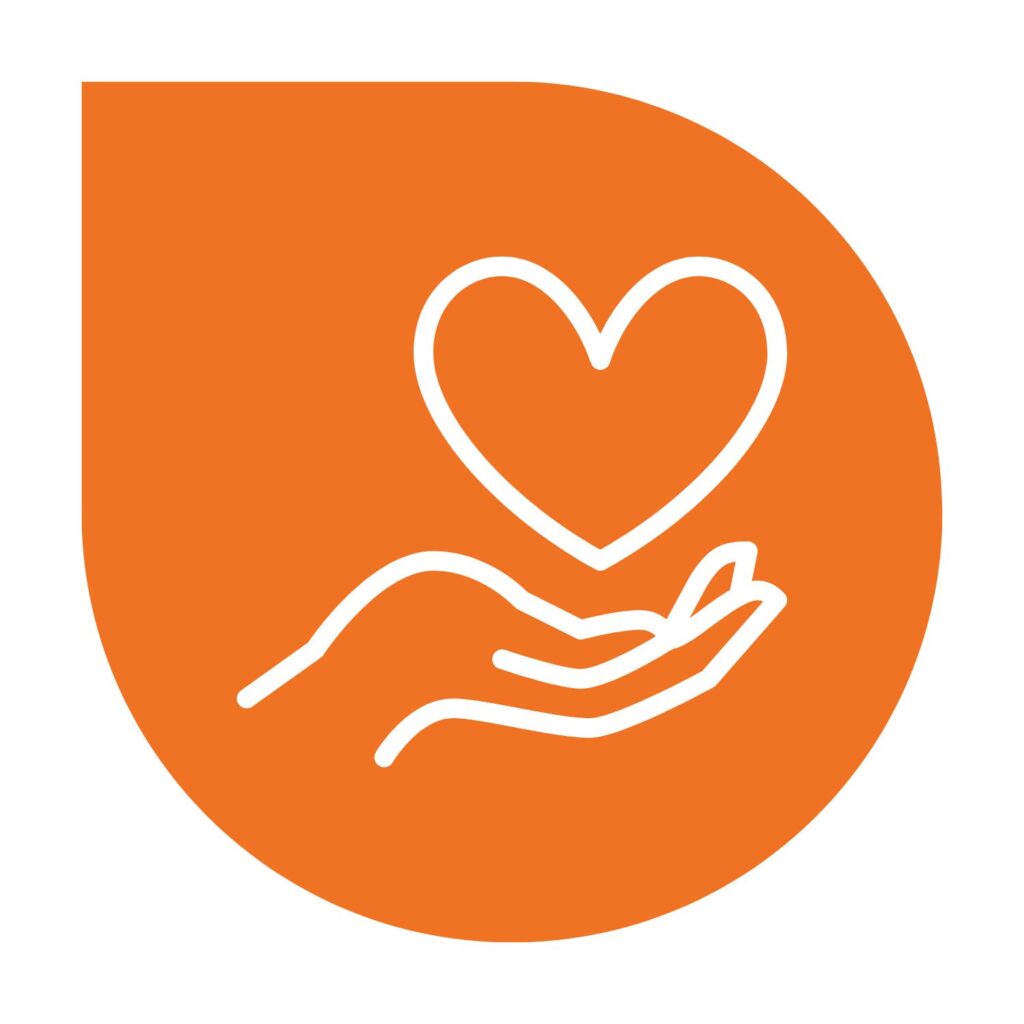
To care for others, it is essential to start by taking care of oneself. Caregivers, through their commitment and dedication, play an indispensable role in our society and deserve all our recognition. By supporting them, we enable them to continue their valuable mission with the strength and compassion needed.
A heartfelt thank you to all these dedicated individuals who, every day, improve the lives of those who need it most.
